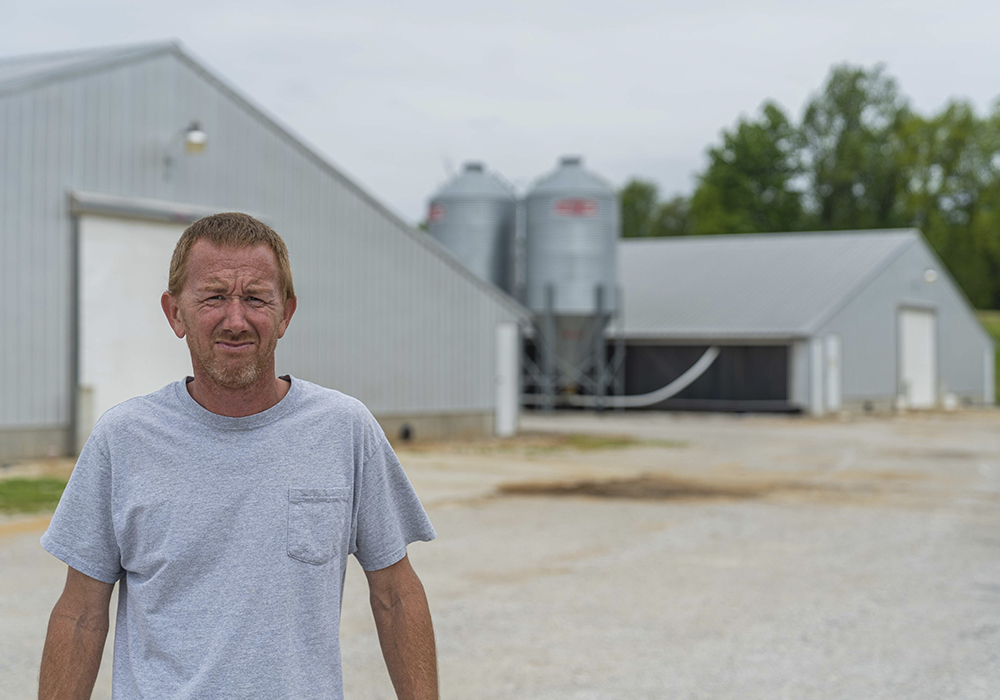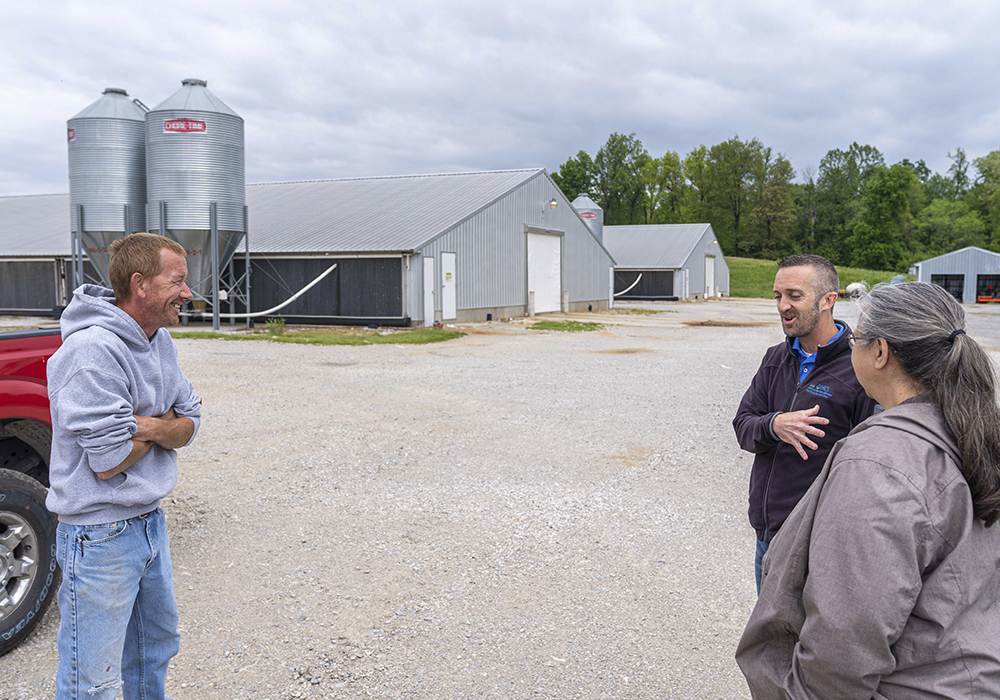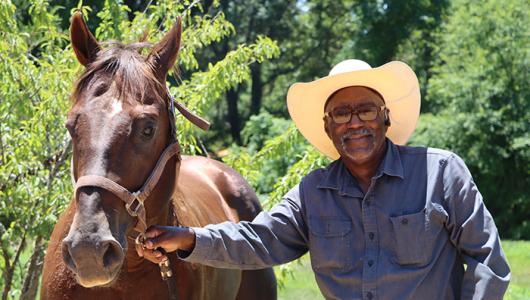In the rolling hills of Washington County, Indiana, dedicated turkey farmer John Baker faces a growing concern – rising energy costs and inefficiency on his bustling poultry operation. John has three turkey barns and raises about 28,000 turkeys at a time. He receives them at five-weeks-old and keeps them for 15 weeks with the goal of raising each bird to top 45 pounds.
“I want to keep the birds happy and healthy, and not waste feed and water and energy,” said John.

Having worked as a mechanic in the strip mines 80 miles away and only coming back home on days off, John was tired of being gone. So, he became a beginning farmer, buying the farm in 2017.
Determined to find a sustainable path forward, he sought the technical expertise of his local USDA Natural Resources Conservation Service (NRCS) office to see how he could lower his energy costs while improving his operation.
“I grew up around the farming industry and just heard other people saying that NRCS helped them do some things,” said John.
Initially, John enrolled in the Environmental Quality Incentives Program (EQIP) On-Farm Energy Initiative to complete a full energy audit on his production, which resulted in a detailed plan of recommended energy upgrades to reduce energy usage to benefit both the environment and his bottom line.
John’s next step was an easy one. He applied and received funding for his next energy contract through EQIP, this time funded by the Inflation Reduction Act.
The Inflation Reduction Act provides an additional $19.5 billion for NRCS to deliver financial and technical assistance to producers for weather mitigation activities through existing USDA conservation programs. That includes EQIP and activities related to on-farm energy efficient upgrades that reduce the use of fossil fuel-based energy.
Through this contract, John installed a radiant heating system and barn insulation throughout his operation. This helps protect the wellbeing of his flock during cold Indiana winters, making his energy use more efficient and less expensive, and resulting in fewer energy-related greenhouse gas emissions.
“Installing these two practices helps trap heat inside during the winter and keeps the birds comfortable while reducing the amount of active heating I have to provide,” John said. “Implementing the changes…has reduced my energy usage; but even more so, it’s improved the health of my birds.”

Historically, the available funding for energy audits and the installation of energy efficient upgrades through NRCS in Indiana has been limited, with only about $50,000 allotted each year through EQIP. That has changed, though, with funding from the Inflation Reduction Act.
“I’ve told other turkey farmers I know to go to their local NRCS office and apply for assistance because it will save them money,” John said.
Thanks to the assistance he received from NRCS, John is now reaping the benefits on his farm. With new, advanced systems in place, he has significantly reduced his energy consumption and operating costs, all while maintaining a comfortable and healthy environment for his turkeys. He is thrilled with the transformation, knowing that his farm is not only more sustainable but also more profitable. Grateful for the support and guidance from NRCS, he feels confident that he has taken a crucial step toward securing a brighter, more energy-efficient future for his operation.
Brandon O’Connor was a public affairs specialist for NRCS in Indiana.


